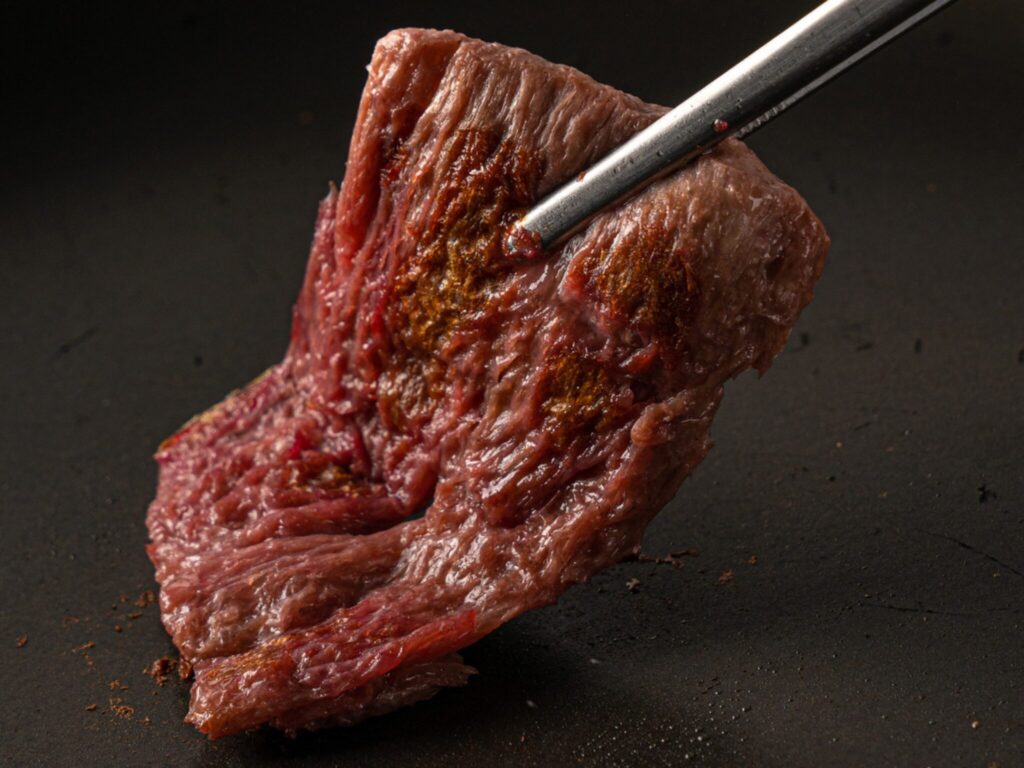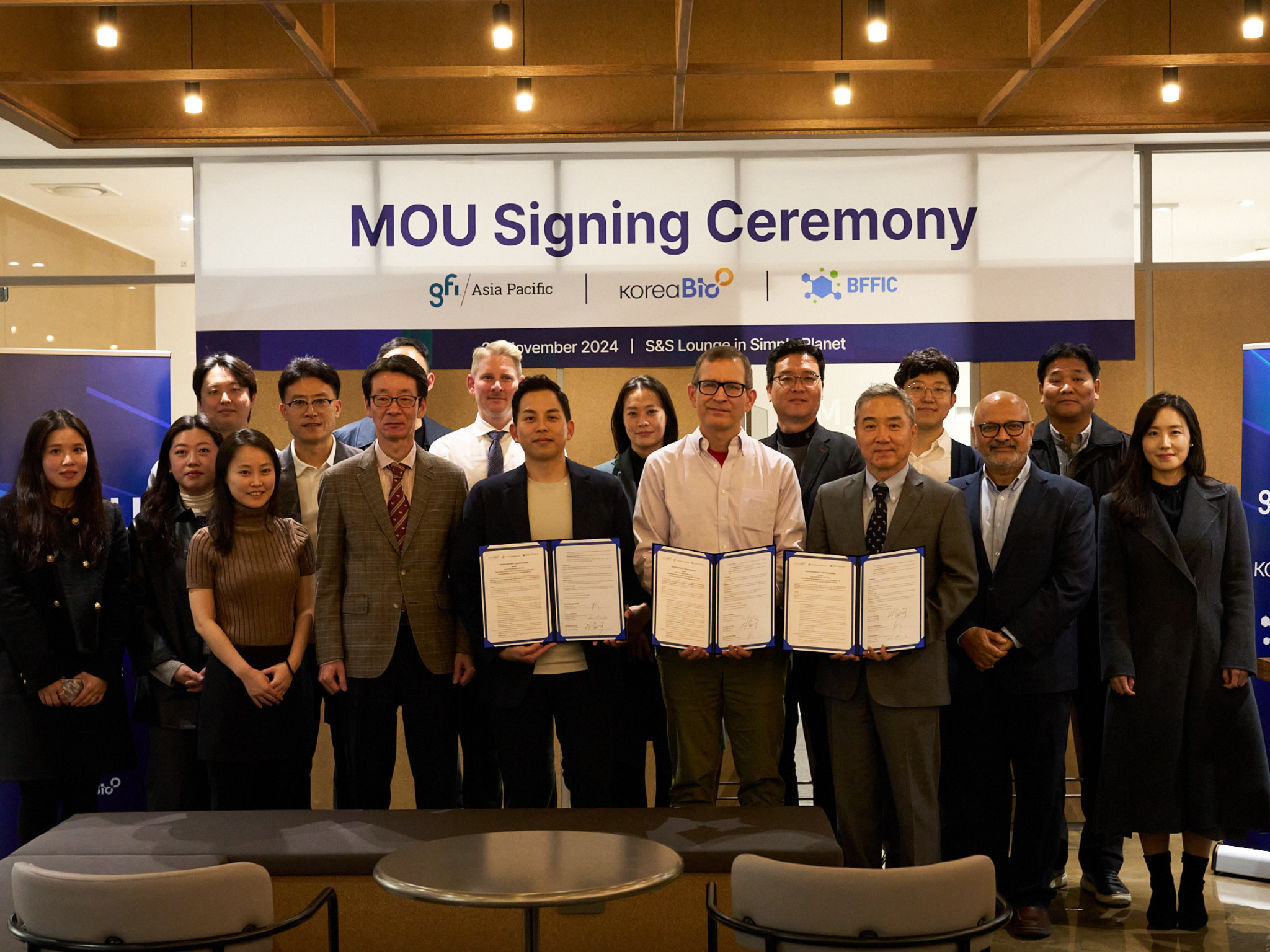Industry Leaders Team Up to Fuel South Korea’s Protein Transition Ahead of Cultivated Meat Arrival
4 Mins Read
Food tech organisations have signed a deal to advance the alternative protein industry in South Korea, where cultivated meat is set to make its entry soon.
As South Koreans prepare to welcome cultivated meat to their plates, stakeholders from the novel food and biotech sectors have joined forces to propel the country’s future food industry forward.
Industry group Korea Biotechnology Industry Organization (KoreaBio) and its Bio-based Future Food Industry Committee (BFFIC) – a coalition of 33 future food companies – have signed an MoU with alternative protein think tank the Good Food Institute Asia-Pacific (GFI APAC).
The three organisations aim to advance market research and knowledge exchanges, increase policy coordination for novel food regulation, facilitate training, and host joint workshops and presentations about alternative protein innovation.
“The association hopes that this agreement will create a domestic industrial ecosystem in line with global trends and enable many Korean companies involved in novel food to successfully expand their business globally,” said KoreaBio vice-president Seung-kyou Lee.
The goals of the alternative protein partnership

The MoU contains a five-point plan outlining the purposes of the yearlong partnership, which will see the industry members meet once every quarter.
The collaboration will seek to leverage GFI APAC’s research, resources and expertise in the sector to enhance BFFIC’s ability to develop and commercialise alternative proteins. The think tank itself will look to tap into the expertise of KoreaBIO and BFFIC members when providing support in the country.
Sharing relevant research, data, reports, and market insights on future foods is a key goal of the partnership, helping speed up the development of South Korea’s novel food ecosystem via regular sessions and workshops, as needed.
Equally important is an effort to work together on policy initiatives to create a favourable regulatory environment for alternative proteins in the nation, setting an example for other countries pursuing such regulatory frameworks too.
The organisations also agreed to bolster international cooperation by connecting the South Korean ecosystem with global organisations and entities working in the future food space – this effort will be aided by GFI’s vast network (the think tank has seven offices across the world).
Finally, the MoU mentions a need to foster industry growth by organising joint webinars, workshops and presentations, which will help raise awareness and drive interest in alternative proteins.
Further highlighting how GFI APAC can provide support, the document notes that KoreaBio and BFFIC can benefit from its research on cultivated meat, fermentation, and plant-based proteins, its comprehensive market analysis, policy guidance, its international network, and educational material, reports and case studies to develop and scale novel food technologies.
Policy progress for cultivated meat in South Korea

“Global mutual cooperation is essential for the industrialisation of novel foods, including alternative proteins, which will be crucial for the future food supply system,” added Dominic Jeong, president of the BFFIC. “A partnership among GFI, KoreaBIO, and BFFIC will be the starting point for building a global network and facilitating a novel food industry in Korea.”
Jeong is also the co-founder and CEO of Seoul-based startup Simple Planet, which is hoping to obtain the regulatory nod for its cultivated meat in South Korea by the first half of 2025. “Consumers will be able to taste or receive prototypes in the second half of next year. The target markets include not only Korea, but also North America and Southeast Asia,” Jeong told Green Queen in May.
His comments came months after the Ministry of Food and Drug Safety established a framework for regulatory approval of these proteins, outlining a process that costs ₩45M ($34,000) and is expected to take up to 270 working days.
The government has also created a regulation-free special zone for the development of cultivated foods in the eastern province of Gyeongsangbuk-do. The ₩20B ($14M) project harbours 10 companies to commercialise these proteins, including TissenBioFarm, Seawith and DaNAgreen, which are also members of BBFIC.
Plus, the Ministry of Oceans and Fisheries announced an investment of ₩29B ($21M) in research funding for plant-based and cultivated seafood technologies. Plant protein giant Pulmuone and Singapore’s Umami Bioworks have both made moves to manufacture cultivated fish products in South Korea recently.
Meanwhile, last year saw the opening of the $7M North Gyeongsang Cellular Agriculture Industry Support Center, a 2,309 sq m facility to fuel the development of biomaterials and support cultivated meat companies.
Research indicates that interest in cultivated meat remains high among Koreans, 90% of whom are willing to give it a go. Two in five are also in favour of these products being sold at supermarkets and restaurants, but price is a significant barrier. While 57% would eat cultivated pork if it’s cheaper than its conventional counterpart – and 25% would do so for beef – just a sixth of Koreans would pay more for cultivated meat.
“Reimagining how meat is made is one of humanity’s greatest untapped opportunities,” said GFI founder Bruce Friedrich. “As a world-class innovation hub, South Korea’s expansive R&D and manufacturing ecosystem will play a crucial role in supercharging cultivated meat development and pioneering the technological breakthroughs our planet urgently needs.”



